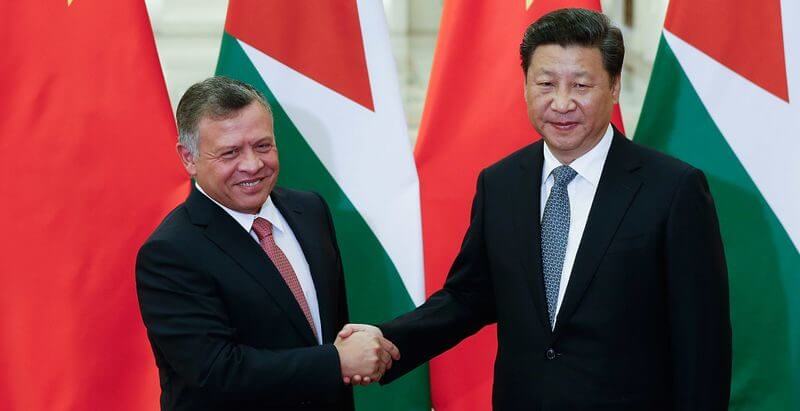By: John Hugh DeMastri, Daily Caller News Foundation
Jordan, a key U.S. ally in the Middle East in the war on terror, is set to lose hundreds of millions of dollars per year buying electricity from a Chinese-owned energy company at an obsolete power plant, The Associated Press reported Wednesday.
Jordanian energy firm Attarat Power Company in 2012 proposed a power plant to supply roughly 15% of the nation’s electricity needs, fueled by the recently discovered large concentration of shale oil in the country, but the project proved more challenging than anticipated and was on the rocks before it was saved by a $1.6 billion loan from China’s state-owned Guangdong Energy Group in 2017, the AP reported. Under the terms of the deal, a part of China’s Belt and Road initiative (BRI), Guangdong additionally purchased a roughly 45% stake in Attarat, and left Jordan on the hook for a roughly $8.4 billion bill to buy energy from the Attarat facility over the next 30 years.
Jordan’s Ministry of Energy is currently contesting the terms of the project — which the government projects will cost $280 million per year, necessitating a 17% surge in the price of electricity for Jordanian consumers — “on the grounds of gross unfairness” in the International Chamber of Commerce, the AP reported. The project is no longer considered necessary for Jordan’s energy security, thanks to the development of other projects and deals made since the plant was first proposed.
The U.S. considers Jordan a “committed partner on counterterrorism” and credits the kingdom as a “regional leader” in the fight against ISIS, in which it played an “important role” limiting the territorial control of the terrorist group, according to the State Department’s Bureau of Counterterrorism. America is the Middle Eastern nation’s largest single financier, having given more than $1.65 billion in aid to the kingdom in the fiscal year 2021, $425 million of which was military funding, the State Department reported.
The U.S. has designated Jordan as a major non-NATO ally since 1996, and the two countries have collaborated on a host of issues ranging from Israel-Palestine relations, COVID-19 response and support for Syrian refugees, according to the U.S. State Department.
China’s willingness to offer large loans to smaller countries to construct infrastructure projects has been criticized by U.S. officials as a “debt trap,” according to the AP. In the past 13 years, China has bailed out almost two dozen countries after selling them high-interest loans to develop projects as part of the BRI.
Countries in financial distress held just 5% of Chinese loans in 2010 when the BRI was rolled out, but that number had soared to 60% by 2022. The initiative has been criticized by Western nations for issuing predatory loans that leave low-income countries dependent on China.
“Attarat is a representation of what the Belt and Road Initiative was and has become,” Jesse Marks, a nonresident fellow at U.S.-based foreign affairs think tank Stimson Center, told the AP.
The Jordanian Ministry of Energy, Chinese Ministry of Foreign Affairs and U.S. State Department did not immediately respond to a Daily Caller News Foundation request for comment.
Related Story: Saudi Arabia Inks Multi-Billion Dollar Deal with China as Kingdom Seeks to ‘Collaborate’ with CCP









